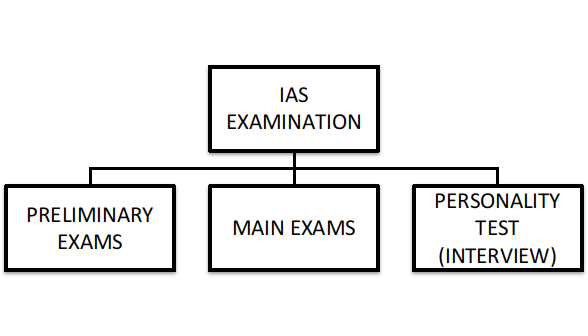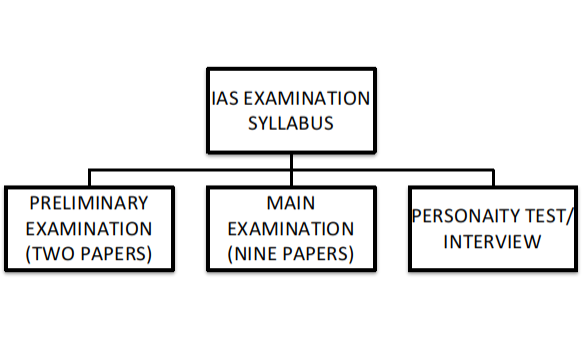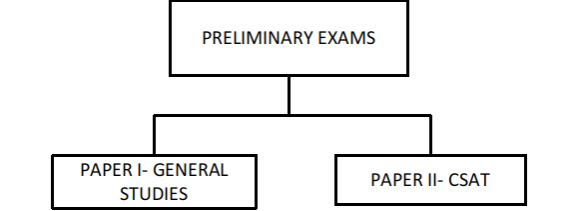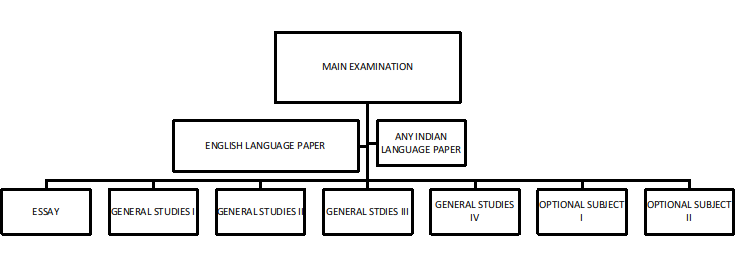UPSC Exam Phases, Eligibility Criteria and Syllabus
Exam Phases
The Civil Services Exam has three phases. The entrance exams are known as the Civil Services Preliminary Exams. A candidate must clear the Prelims to appear in the Main exams. The shortlisted aspirants who further pass the Mains, move on to the final stage of the exam which is the Personality Test (Interview).
ELIGIBILITY CRITERIA
Age: The minimum age as on the 1st of August of the year of appearing for the exam must be 21. The maximum age for General, OBC, SC/ST and disabled candidates is 32, 35, 37 and 42 respectively.Attempts: The maximum number of attempts for General and OBC candidates are 6 and 9 respectively. SC/ST candidates can attempt unlimited times until their age limit. In case of disabled candidates, General and OBC categories are allowed 6 and 9 attempts respectively, while disabled SC/ST candidates can attempt an unlimited number of times until the age limit.
Education: The candidate must hold a Bachelors degree from any of the Universities incorporated by an Act of the Central or State Legislature in India or other educational institutions established by an Act of Parliament or declared to be deemed as a University, under Section-3 of the University Grants Commission Act, 1956, or possess an equivalent qualification. Students appearing for final year exams or awaiting final year results can also apply for the Preliminary exams. However, a candidate must produce a proof of Pass Bachelor Degree to apply for the Main exams.
EXAM SYLLABUS
The syllabus for IAS exams is also divided into three parts like the structure of the exam.

The preliminary exams have two papers (as discussed earlier in UPSC Exam Format) and each paper is of two hours. The General Studies paper comprises almost all the subjects taught in school, including Indian Polity, Indian Economy, History, Geography, Environment and Ecology, Science, International Relations and Current Affairs. The CSAT paper has questions that assess the aptitude of the candidate in reasoning and analytical based questions, reading comprehension and decision making.
The General Studies Paper has a hundred questions with each question carrying two marks. 0.66 marks are deducted for each wrong answer. The CSAT paper has eighty questions with each question carrying 2.5 marks; 0.833 marks are deducted for each wrong answer. The decision-based questions are generally exempt from negative marking. Also, there is no deduction of marks if a question is not attempted.
The syllabus of the General Studies paper is:
- Current events of national and international importance
- History of India and Indian National Movement
- Indian and World Geography: Physical, Social, Economic Geography of India and the World
- Indian Polity and Governance: Constitution, Political System, Panchayati Raj, Public Policy, Rights Issues, etc.
- Economic and Social Development: Sustainable Development, Poverty, Inclusion, Demographics, Social Sector initiatives, etc.
- General issues on Environmental Ecology, Biodiversity and Climate Change, which do not require subject specialisation
- General Science
The syllabus for CSAT Paper is:
- Comprehension
- Interpersonal skills including communication skills
- Logical reasoning and analytical ability
- Decision-making and problem-solving
- General mental ability
Basic numeracy (numbers and their relations, orders of magnitude, etc. - Class X level), Data interpretation (charts, graphs, tables, data sufficiency etc. - Class X level).
The Main Examination:
The Main Examination has nine papers. There are two qualifying papers on languages - (a) any Indian language (b) English language. In these two papers, there are five questions - essay (100 marks), reading comprehension (60 marks), précis writing (60 marks), translation from English to an Indian language and vice versa (forty marks, twenty each) and grammar usage (40 marks).
The rest of the seven papers (250 marks each) are as follows-
(The syllabus for each has been given in a gist)

- Paper 1 - Essay: Candidates are advised to practice essay writing on various topics related to current, historic and debatable topics.
- Paper 2 - General Studies I (Indian Heritage and Culture, History and Geography of the society and world): This will cover Indian art forms, culture and literature, the history of India. The world history from the eighteenth century such as colonisation, socialism, decolonisation, the industrial revolution, etc., the salient features of the Indian society, its diversity, the role and position of women, and geography.
- Paper 3 - General Studies II (Governance, Constitution, Polity, Social Justice & International Relations): Salient features of the Constitution, the history of the Constitution. The features of Indian political and Governance system, the structure of Indian Politics, Parliament and Judiciary. India’s foreign policies, treaties and relations with its neighbouring and other nations.
- Paper 4 - General Studies III (Technology, Economic Development, Biodiversity, Security & Disaster Management): Technological and scientific achievements and developments of India, Economic planning and concepts used in the Indian economy, environmental conservation, disaster management and border security.
- Paper 5 - General Studies IV (Ethics, Integrity & Aptitude): Dimensions of ethics, ethics in private and professional relationships, human values, moral and political attitudes, emotional intelligence, public and civil service ethics and issues, the concept of public service.
- Paper 6 & 7 - These are based on Optional Subjects (Paper I) and Optional Subjects (Paper II): Candidates need to choose from a pool of forty-eight subjects which include literature in English and other Indian Languages.
The Interview or UPSC Personality test (275 marks) is designed to assess the presence of mind and personal suitability of a candidate. There is no strict syllabus for an interview. The interviewer explores the mental and analytical abilities of the aspirant. It is a natural but directed and purposive conversation.
Overall, the UPSC may seem to be overwhelming, but the key is in systematically dealing with the syllabus and remembering that knowledge is an endless ocean and there is no end to learning. The preparation for IAS exam will only make you drink a quarter or even less of that ocean.